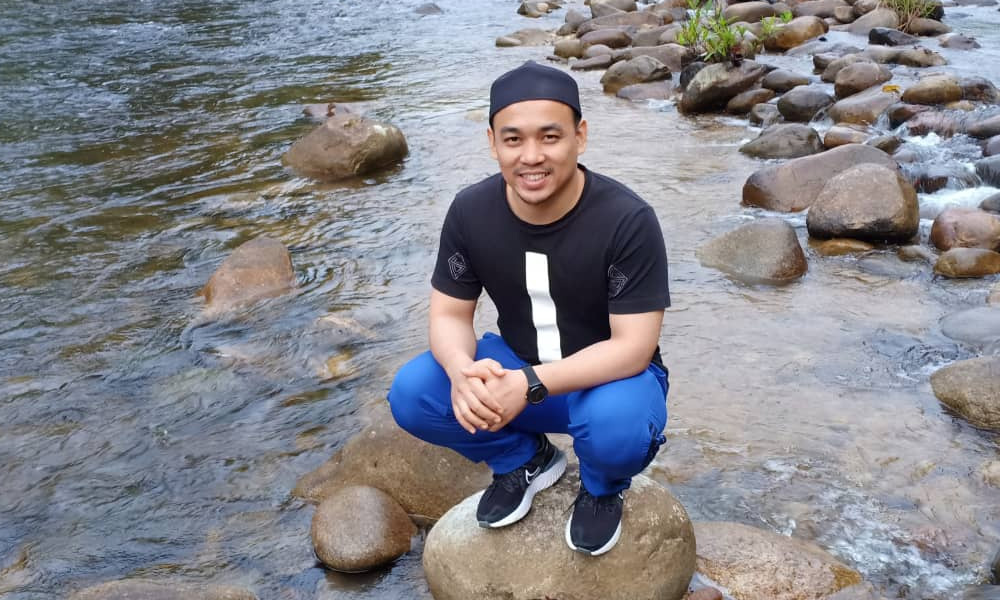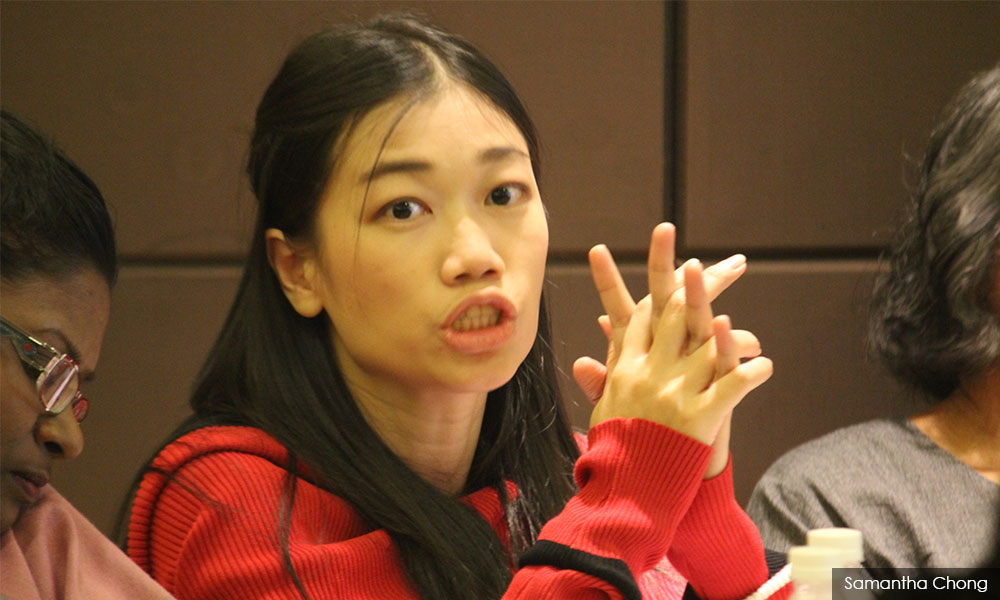In the wake of Health Minister Khairy Jamaluddin's parliamentary reply stating products containing cannabis used for medicinal purposes can be imported and used in Malaysia, groups and individuals call for this to be reflected by amending existing laws.
Pending criminal cases involving medical marijuana should also be reviewed, said lawyer Samantha Chong.
"It will take some time to establish the policy framework and it is unsure if the cannabis will be used in raw/processed form or if it will be used in edible form or externally.
"There are many details to be ironed out, but what the government can now do is to review pending criminal charges against those who use cannabis to cope with their health problems.
"Especially those facing the death penalty for drug trafficking charges," Chong told Malaysiakini.
One high-profile case is that of retired armed forces captain Amiruddin @ Nadarajan Abdullah, better known as 'Dr Ganja', who is still facing the death penalty.
Amiruddin has been in detention since he was first charged in May 2017. He is facing 33 charges under the Dangerous Drugs Act after police reportedly found substantial quantities of cannabis used for medicinal purposes at his home in Kampung Delek Dalam, Klang, Selangor.
In another notable case, Muhammad Lukman Mohamad was sentenced to death on Aug 30, 2018, under the Dangerous Drugs Act (DDA) for possession of 3.1 litres of cannabis oil, 279gm of compressed cannabis and 1.4kg of substances containing tetrahydrocannabinol (THC).
However, earlier this year, on Feb 17, Lukman was freed when a three-member Federal Court bench led by Chief Justice Tengku Maimun Tuan Mat allowed his appeal to set aside his conviction on two counts of drug trafficking.
Activists consider Khairy's parliamentary reply, that products containing cannabis used for medicinal purposes can be imported and used in Malaysia if the product is in compliance with the requirements of the law, to be a breakthrough.

Khairy had said that the existing laws that regulate cannabis in Malaysia are the Dangerous Drugs Act 1952, Poisons Act 1952 and the Sale of Drugs Act 1952, all of which do not prohibit the use of cannabis for medicinal purposes.
Khairy said this in a written parliamentary reply to Muar MP Syed Saddiq Syed Abdul Rahman.
Syed Saddiq asked the Health Ministry to clarify Malaysia’s position on the use of hemp, or “medical marijuana”, as alternative medicine that can be offered to patients, as it has been implemented in many countries and recognised by the international medical community.
Syed Saddiq, who has been advocating for medical marijuana use recently, heads a bipartisan caucus to study regulations and form policies for the medical use of marijuana and ketum.
Amending the Dangerous Drugs Act
Harish Kumar, who is vice-president of the marijuana advocacy group, Malaysian Awareness Society (Masa), said it is important for Malaysia to remove cannabis from Schedule 1 under the DDA and place it into a lower Schedule to ease the import of cannabis products for research and medicinal use.
"This will also require the National Pharmaceutical Regulatory Agency to draft a new guideline specifically for cannabis and hemp.
"With more research and evidence, the government can then make the decision to remove cannabis from the DDA if it proves to be safe and beneficial for the people," Harish said.

Chong said the tackling of drug problems in Malaysia needs to follow the principle of proportionality and respect for human rights.
"Yesterday’s announcement is definitely a positive step towards evidence-based drug policy.
"Right now, possession of more than 200gm of cannabis will trigger the presumption of trafficking, which is punishable with death.
"Since the setting up of a policy framework and clinical trial might take a long time, the government should decriminalise medical cannabis. Decriminalisation means the removal of the criminal penalty and does not equate to legalisation," she said.
Practical aspects of medical marijuana
Chong highlighted that Section 12 of the Control of Drugs and Cosmetics Regulations 1984 provides for a clinical trial import licence to import any product for the purposes of clinical trials.
"I am not aware of any local lab that can do testing on medical cannabis. To obtain approval from the Drug Control Authority as a medicinal product, it is mandatory to go through lab testing and clinical trials," she said.
She said she could not stress enough on the importance of social equity when it comes to medical cannabis.
"The government needs to ensure that people from communities disproportionately harmed by cannabis prohibition are included in the new legal medical cannabis industry and not to enrich certain sectors per se.
"Also, the price of medical cannabis must be reasonable so that people will not resort to black markets," Chong added.
Earlier this week, activists expressed sadness over the violent death of a marijuana user at a rehabilitation centre and called on the government to reform its laws before more lives are lost to the system.
Harish pointed out that there are three separate but related issues that have been addressed as policies by the Pakatan Harapan government, but were not changed into law.
The first is the issue of the legal status of medical marijuana, which has just been clarified by Khairy.
The second is the decriminalisation of small quantities of drug possession so that addicts can be treated as patients, not criminals.
The third is the removal of the mandatory death penalty as part of the sentencing of those convicted under the Dangerous Drugs Act. - Mkini



No comments:
Post a Comment
Note: Only a member of this blog may post a comment.